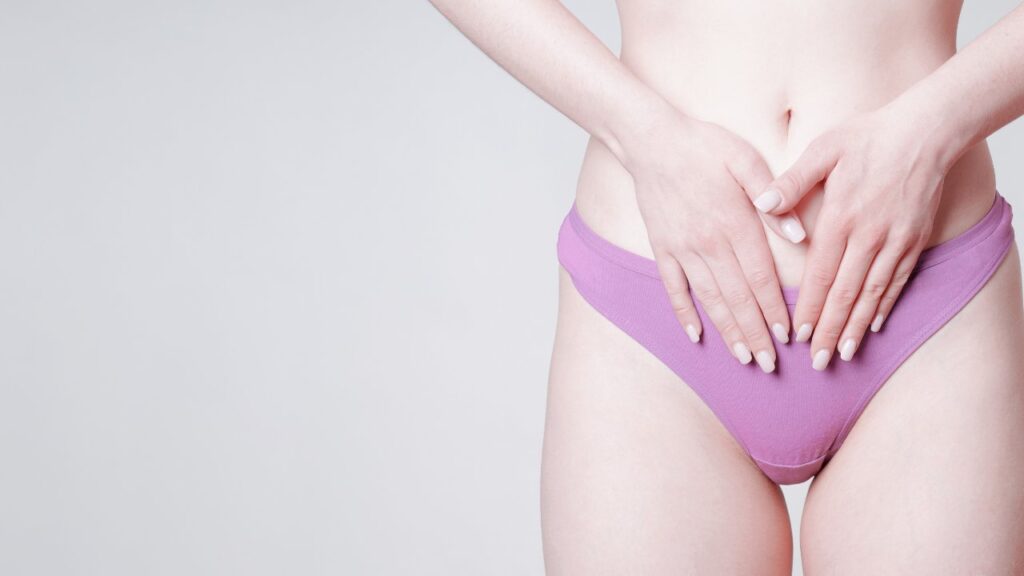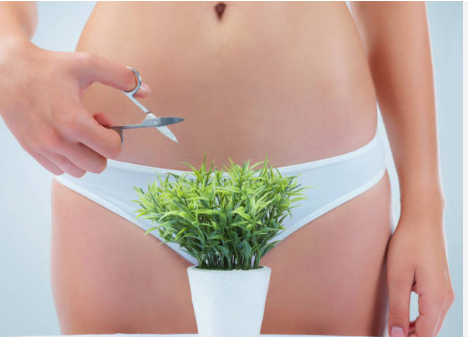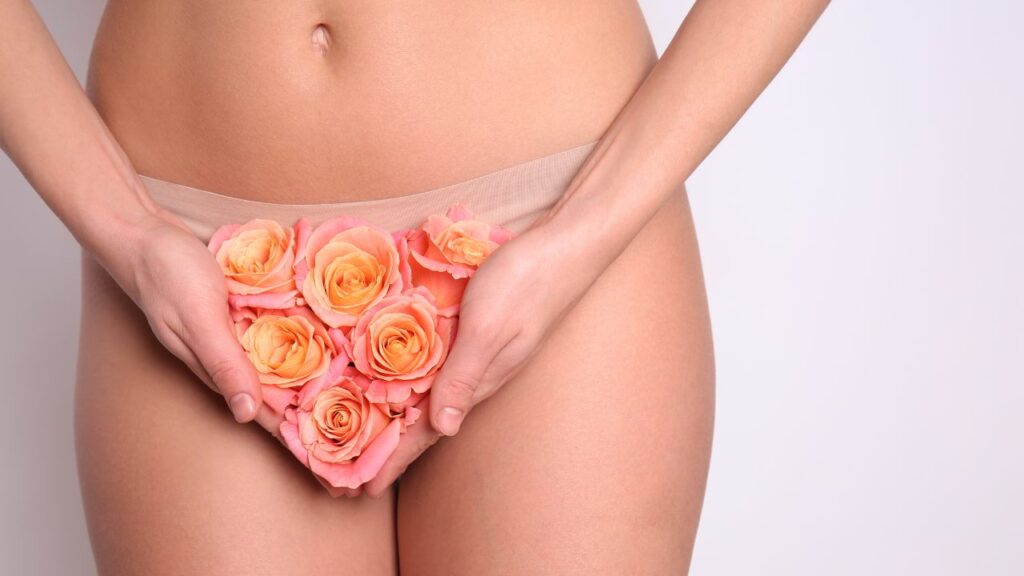The Loss of Hair We Do Not Talk About:
Loss of Female Pubic Hair

Female pubic hair serves various purposes, including protection, moisture regulation, and a unique aspect of personal expression. However, the topic of pubic hair loss in women is rarely discussed openly. In this article, we will delve into the causes, implications, and care options for female pubic hair loss, providing you with a comprehensive understanding of this often-overlooked concern.
Causes of Female Pubic Hair Loss
Aging:
Just like the hair on your head, pubic hair can thin and become sparser with age. This is a natural part of the aging process, and it happens because hair follicles shrink over time.
Hormonal Changes:
Hormonal fluctuations due to pregnancy, menopause, or medical conditions like polycystic ovary syndrome (PCOS) can impact pubic hair density. Changes in hormone levels can result in hair thinning or loss in the pubic area.
Hair Removal Techniques:
Frequent waxing, shaving, or using depilatory creams in the pubic area can weaken hair follicles over time, leading to hair loss.
Medical Conditions:
Certain medical conditions, such as alopecia areata or trichotillomania (compulsive hair-pulling disorder), can affect pubic hair along with hair on other parts of the body.
Nutritional Deficiencies:
A lack of essential nutrients in your diet can contribute to hair loss, including the pubic region. Ensure you’re consuming a balanced diet rich in vitamins and minerals.
Stress:
Chronic stress can disrupt hormone balance and lead to hair loss, including in the pubic area. Managing stress through relaxation techniques and self-care is crucial.
Implications of Pubic Hair Loss in Women
Psychological Impact: Pubic hair loss can have a significant psychological impact on women, affecting self-esteem and body image. Some may feel self-conscious or less attractive.
Physical Discomfort:
Pubic hair serves as a protective barrier, and its loss can result in increased friction, discomfort, and vulnerability to infections.
Personal Preference:
Many women have personal preferences regarding their pubic hair, and its loss may not align with their desired grooming style.
Caring for Your Pubic Hair
If you’re experiencing pubic hair loss or thinning, there are several steps you can take to address the issue and maintain the health of your remaining pubic hair:
Consult a Healthcare Professional:
If you suspect that hormonal imbalances or medical conditions are causing your pubic hair loss, consult a healthcare provider for a proper diagnosis and treatment.
Gentle Hair Removal Methods:
If you engage in hair removal practices, opt for gentler methods like trimming or using an electric trimmer rather than harsher options like waxing or depilatory creams.
Healthy Diet:
Ensure you’re consuming a balanced diet with sufficient nutrients for hair health, including vitamins A, C, D, E, and biotin. A diet rich in protein and iron can also promote hair growth.
Stress Management:
Practice stress-reduction techniques such as meditation, yoga, or deep breathing exercises to help maintain hormonal balance.
Topical Solutions:
Some women find benefits in using topical treatments like minoxidil, which can stimulate hair follicles and promote regrowth. Consult a dermatologist before using any over-the-counter products.
Embrace Natural Beauty: Consider embracing your body’s natural state, including your pubic hair. Society’s standards of beauty are evolving, and many women find empowerment in embracing their natural appearance.
Loss of Female Pubic Hair: Conclusion
Female pubic hair loss is a common but rarely discussed issue that can have both physical and psychological implications. Understanding the causes and consequences of pubic hair loss is essential for women’s overall well-being. By adopting a holistic approach that includes addressing underlying health concerns, practicing gentle grooming methods, and promoting self-acceptance, women can navigate pubic hair loss with confidence and grace. Remember that consulting a healthcare professional for personalized guidance is always a prudent step when dealing with hair loss concerns.

ON A DIFFERENT NOTE:
Embracing Your Body: The Pubic Hair Dilemma
You’ve heard it all before – the tales of teenage embarrassment, the pressure to conform, and the painful pursuit of smoothness in the most intimate of places. Pubic hair removal is a topic that has been around for ages, and it’s time we delve into this hairy subject matter. Yes, we’re talking about the loss of female pubic hair, and trust us, there’s a lot more to it than you might think.
The High School Horror:
Picture this: high school, freshman year, a group of friends gathered at a house. The conversation takes a surprising turn when a junior girl insists that everyone should shave off all their pubic hair because that’s what guys expect. Panic sets in for many, and so begins the saga of pubic hair removal.
For some, the fear of someone discovering their pubic hair was almost as horrifying as being seen without a shirt. The dread of being exposed was real. So, the journey of eradicating every trace of pubic hair began. But why? Why do we put ourselves through this ordeal?
The Razor Rollercoaster:
The quest for the smoothest nether regions starts at a young age for many girls, often long before anyone of the opposite sex even gets close to exploring these uncharted territories. The fear that someone might somehow find out drives many to eliminate all signs of puberty. Shaving becomes a daily ritual to maintain the illusion of a hairless haven, and the consequences are not pretty.
Complete hair removal can be an excruciating experience, comparable to plucking a live chicken. The smoothness of the first day fades quickly, leaving you with razor-sharp hairs that seem to catch on everything. Razor burns, rashes, bumps, and painful ingrown hairs become part of the package. It’s a vicious cycle, and it’s not as attractive as it may seem.
The Origin Story:
But why did this obsession with bareness begin in the first place? The surprising answer lies in the world of pornography. Pubic hair used to be seen as provocative, an element of sex appeal. However, by the late 2000s, complete hair removal became the norm in the industry. The prevalence of bare genitalia in pornography led to the belief that hairless penises and vaginas were more erotic.
It’s a sad reality that girls as young as 12 or 13 started experiencing razor burn because they felt compelled to shave. Puberty became synonymous with the pressure to remove all signs of it. The very things that mark the transition from childhood to adulthood, like hair growth and curves, were deemed undesirable and had to be eradicated.
The Statistics:
Already back in a 2014 survey, college students revealed some alarming statistics. Thirteen percent of men and four percent of women reported leaving their pubic hair natural. Forty-nine percent of guys and eighty-two percent of girls shaved it all off in the past month. Approximately 95% of both men and women had engaged in some form of hair removal, with shaving being the most prevalent method.
Sixty percent of men preferred women to be hairless, but one in five preferred some hair. For women, twenty-four percent preferred partners to be partially waxed or shaved, while sixty percent of them went for a hair-free look. The reasons ranged from cleanliness to hygiene and societal pressure.
The Full Bush Brazilian:
One interesting trend that emerged is the “full bush Brazilian,” where some hair is left up front while the rest is shaved clean. This approach challenges the notion that total hairlessness is the only way to go. It’s time for a rethink.

The Pubic Hair Dilemma: Conclusion:
In conclusion, shaving female pubic hair is a complex and deeply ingrained issue that has its roots in societal expectations and the world of pornography. However, it’s time to challenge these norms and ask ourselves why we do what we do. It’s essential to remember that personal grooming choices should be about comfort and self-confidence, not conformity. So, whether you choose to embrace your body hair or remove it, the decision should ultimately be yours, free from the burden of societal expectations.
